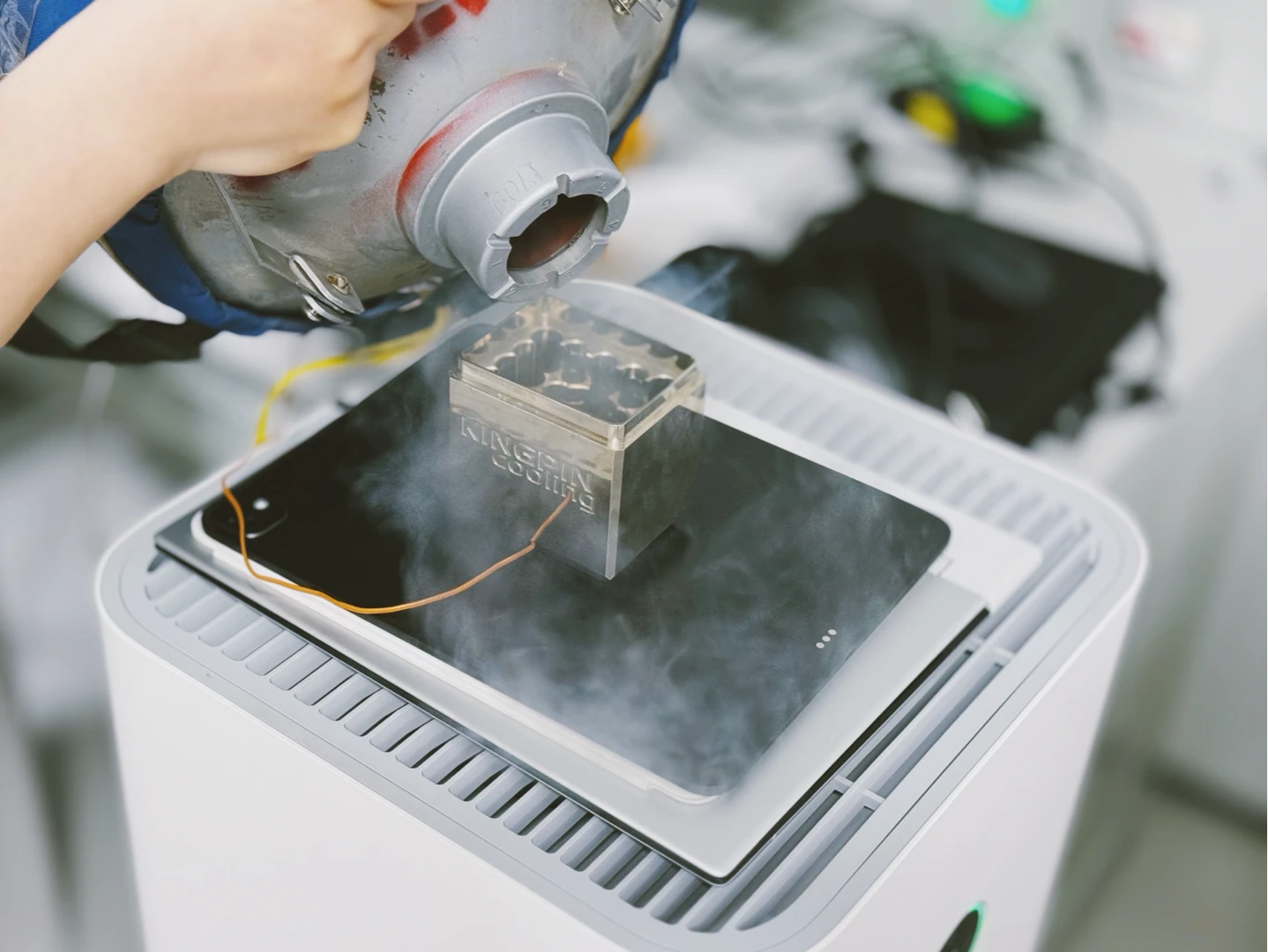
Liquid nitrogen is the go-to cooling substance for breaking overclocking world records in the PC hardware world. So the team at Geekerwan decided to use this exotic cooling method to see what Apple's new M4 iPad Pro can do.
Geekerwan benchmarked the M4 in its 3+6 core (3 performance cores, 3 efficiency cores) configuration but has already purchased the 4+6 variant for more tests.
Geekerwan placed a Kingpin Cooling T-Rex Rev 4 CPU LN2 pot at the back of the iPad Pro, probably where the M4 processor is located, and poured liquid nitrogen into it to keep the chip cool. Apple's silicon was operating at 4.41 GHz during the benchmark run. Geekerwan plans to release the video on May 18, so we'll get more details on the endeavor very soon.
Performance data for other Apple processors is from Geekbench 6's database.
The M4 iPad Pro achieved a single-core score of 4,001 points, 28% faster than the M3 Max in the 16-inch MacBook Pro. The M4 also defeated the M2 Ultra from the Mac Studio by a significant 44% margin. The M4 iPad Pro's score is perfect, considering it doesn't have the same active cooling as the MacBook Pro or Mac Studio. Even in its normal state, the M4's single-core performance is high at 3,000s and close to the 4,000-point mark. The liquid nitrogen helped push the M4 to the finish line for the last few yards.
The M4's multi-core performance didn't impress, however. It was 54% slower than the M3 Max and fell behind the M2 Ultra by up to 57%. Geekerwan submitted various Geekbench 6 entries, with the highest multi-core result of 14,785 points, so the M4 still lies behind Apple's older silicon.
The M4 processor, a product of TSMC's N3E process node, has debuted in Apple's new iPad Pros. Apple offers the M4 in two unique flavors. The 10-core configuration follows a 4+6 design with four performance cores and six efficiency cores, found in 1TB and 2TB iPad Pros with 16GB of unified memory. On the other hand, the 9-core configuration has a 3+6 layout with three performance cores and six efficiency cores, powering the 256GB and 512GB iPad Pros with 8GB of unified memory.
It's important to emphasize that Geekerwan's M4 iPad Pro wasn't utilizing the top 4+6 configuration. It'll be interesting to see how big of a difference the extra performance core can make. But we wouldn't hold our breath: Apple's iPadOS is still holding back the silicon, so we likely won't fully grasp the M4's performance until it makes its way into a MacBook Pro or Mac Studio with proper cooling and macOS.

.jpg?w=600)





